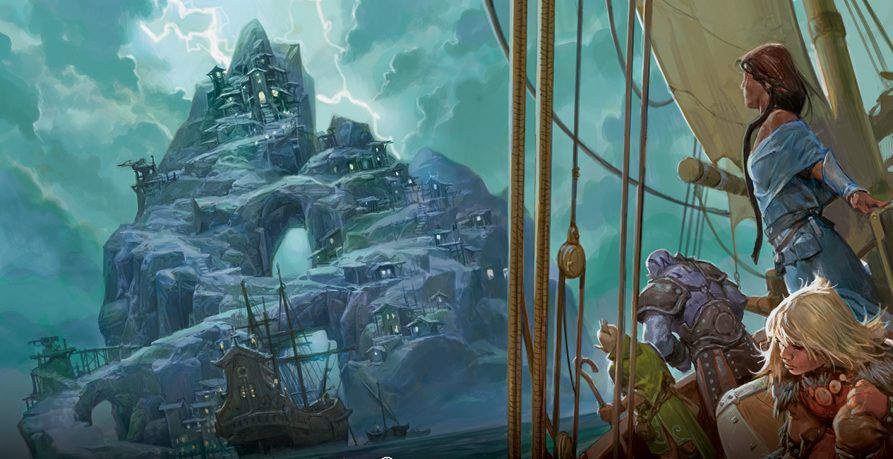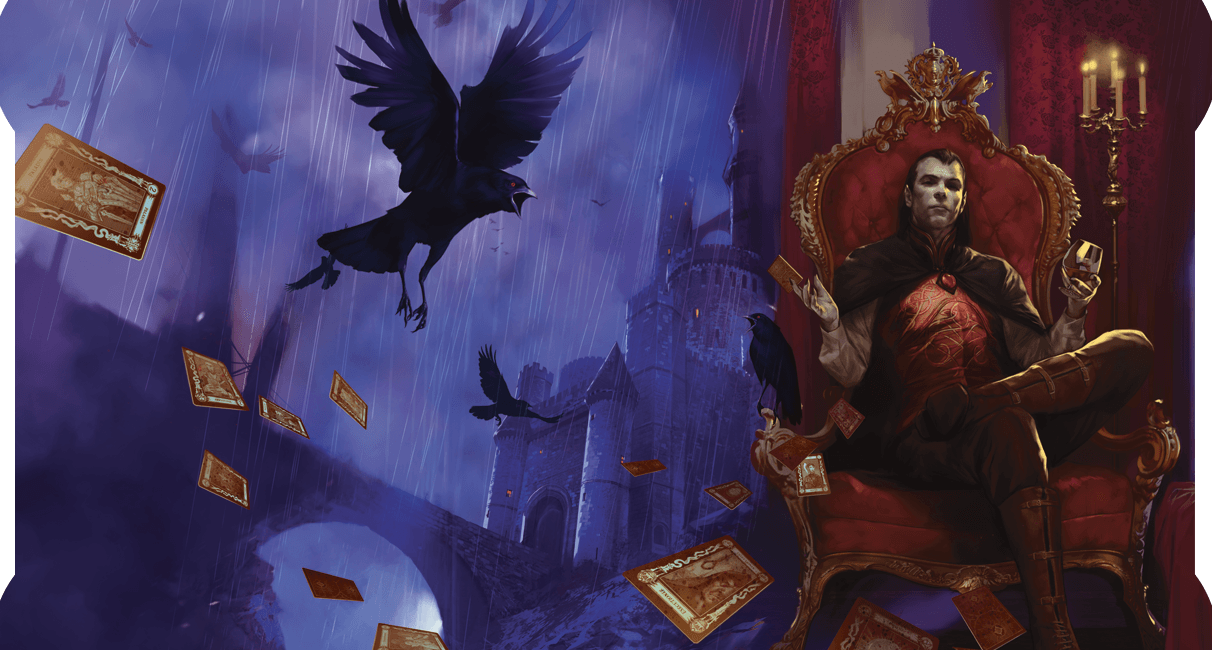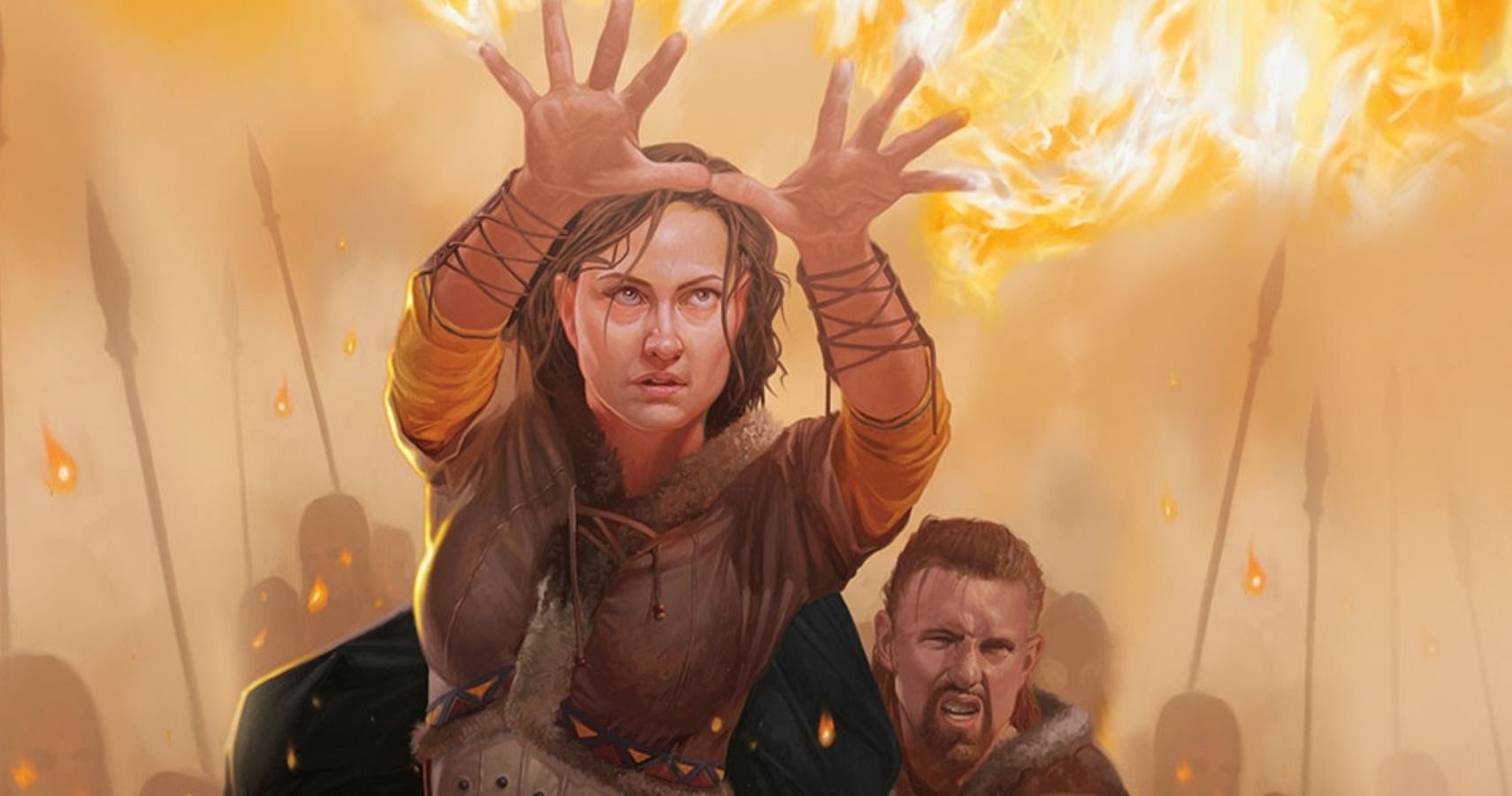Explorer’s Guide to Wildemount is a new Dungeons & Dragons book from Critical Role Dungeon Master Matthew Mercer. As the title implies, it’s a guide to the setting of Wildemount, the continent where the events of Critical Role season two take place. It’s a world of Mercer’s creation, and he took the liberty of adding his own game mechanics to reflect unique nature of his reality. Chief among these is Dunamancy, the study of an ancient magic that can tap into time and space.
Dunamancy is one of the best features introduced in Wildemount, as it gives players new and creative ways to affect their game. They can use it to jump ahead in initiative, reroll bad dice rolls, and even age an enemy to death. However, the power is not to be taken lightly. Even Mercer himself warns against handing out Dunamancy like candy. It’s actually meant to belong to the Kryn Dynasty of Wildemount, meaning a character may have to tie their backstory to Kryn to use it. Many players will not be happy with that restriction, especially if they don’t care for Critical Role or its setting.
One of the easiest ways to explain a powerful new addition to a world is a lost civilization. Perhaps your world was once ruled by a mighty empire that fell to its own hubris or was wiped out by a catastrophe. Maybe their pursuit of Dunamancy is even what caused the destruction in the first place. Time and space magic aren’t exactly high school science projects. Few traces of this tragic empire remain, save for some ruins that your party delves into during their journey.
This approach allows the DM to give Dunamancy a test introduction. Since nothing is left but ruins, the party is lucky to find even one intact spell scroll or the hastily-scribbled notes of a Dunamancy researcher. The most they could expect to get from that is one spell, and even then the wizard would have to study to learn it. This is a great approach if a table just has one Critical Role fan that really wants Dunamancy. The DM can dip their toes in, reintroducing the lost civilization if Dunamancy merits a return.
A Special Teacher
Many D&D campaigns see the players have a brush with the supernatural. Gods, demons, fey, and other such beings often roam freely in the world and interact with the players. Critical Role even had one of its players mistake a fey for a god and devote herself to him as a cleric. If a DM has a homebrew world with similarly active gods, maybe these beings could teach the party the art of Dunamancy.
It makes sense to have the powers of space and time gifted by an otherworldly being. Or maybe the being regularly tests the party to ensure they’re responsible enough to wield Dunamancy. This would also be a great way to give the party cleric a goal: becoming worthy of their deity’s blessing.
Patent Pending
Going in the complete opposite direction: who needs a teacher? What if the party wizard was researching the secrets of magic and became the world’s first Dunamancer? This approach gives a plausible reason for why they party can’t just have Dunamancy spells all at once. The DM can deliver them over time as the wizard learns more about this new power.
The one condition to this approach is that it requires a good amount of roleplay. The wizard’s player has to be on board with their character being a researcher. They also need to be given downtime and be willing to use it on study. If the wizard has some other goal in mind, or the player would rather just shoot fire than roleplay their experiments, this method probably won’t have much of a payoff.
Get Weird With It
Finally, a DM could just abandon reason altogether and come up with an origin for Dunamancy on the fly. This could be the way to go if the campaign is more casual or the players prefer wacky adventure over structured story. A trip to the Feywild or some alternate dimension could result in the casters coming back with weird time magic. There’s also that one party member who likes to do foolish things just to mess with the DM. Maybe for once, when they chug a mysterious potion without checking it first, they actually get rewarded with a new spell.
This method might also work if there are Critical Role fans at the table. Rather than try to give narrative justification, everyone can just acknowledge that Dunamancy is is now a thing because it’s from their favorite show. There could even be a “crossover episode” where the party crosses paths with the characters from the show. This is Dungeons & Dragons, after all. One’s imagination (and suspension of disbelief )is the only limit.
Source: Read Full Article



